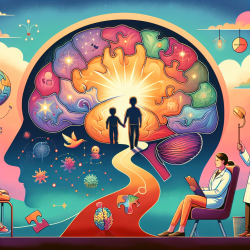Introduction
The COVID-19 pandemic has significantly impacted the mental health of families, especially those dealing with Attention-Deficit Hyperactivity Disorder (ADHD). A recent study published in PLoS One highlights the unique challenges faced by these families during the pandemic, offering valuable insights for practitioners aiming to improve their skills and support systems.
Understanding the Impact
The study engaged 33 participants from 15 parent-child dyads through virtual interviews, revealing increased child anxiety, social disconnectedness, and deteriorating parental mental health as primary effects of the pandemic. These challenges were compounded by barriers such as lack of routine, social interaction, and uncertainty.
Implementing Research Outcomes
Practitioners can enhance their skills by integrating the following strategies based on the study's findings:
- Structured Routines: Encourage families to establish and maintain daily routines to provide stability and reduce anxiety.
- Social Interaction: Facilitate virtual social interactions and support groups to mitigate feelings of isolation.
- Parental Support: Offer resources and training to help parents manage stress and improve their mental health.
Encouraging Further Research
While this study provides crucial insights, further research is needed to explore long-term effects and develop comprehensive support systems for families with ADHD. Practitioners are encouraged to engage in ongoing education and research to stay informed about best practices.
Conclusion
By understanding the unique challenges faced by families with ADHD during the pandemic, practitioners can better support these families and improve their own professional skills. For those interested in a deeper dive into the research, the original paper can be accessed here: The impact of the COVID-19 pandemic on the mental health of families dealing with attention-deficit hyperactivity disorder.










